Television Pioneers Honored at the 66th Engineering Emmy Awards
Television technology never stops, and those who create that technology continue to innovate.
The Television Academy and The National Academy of Television Arts and Sciences recognized television technology innovators at the 66th Engineering Emmy Awards on January 8, 2015.
Engineering Awards are presented to both individuals and companies who change the way we make and watch television. Technical advances from new cameras to connections between devices to protecting the hearing of television audiences were honored at this year’s awards.
Hosted by Jeopardy host Alex Trebek and tech writer David Pogue, the ceremony offered five Engineering Awards, as well as the Philo T. Farnsworth Award and the Charles F. Jenkins Lifetime Achievement Award. Here are the winners:
Engineering Awards
Two camera systems won awards. Philips Professional Broadcasting won for its LDK 6000 CCD Multi-format HDTV camera system, and Sony Professional Solutions of America won for its Multi-format HDTV CCD Fiber Optic camera system.
Also winning an Engineering Award were the developers of the High Definition Multimedia Interface (HDMI), a connection cable that has revolutionized digital connections between digital audio, video, and auxiliary data in home consumer systems.
The Advanced Television Systems Committee (ATSC) was awarded for its codification of an enforceable regulation regulating the loudness of commercials as relating to the volume of television programs.
The regulation is in response to the United States Commercial Loudness Mitigation (CALM) Act of 2010. ATSC also took direct action to develop an automated method to address the issue of loud commercials, which has dramatically improved consumer satisfaction.
The final Engineering Award went to the Intel Corporation for its development of High-bandwidth Digital Content Protection (HDCP), which protects content across multiple platforms from being copied and pirated, while delivering high quality copyrighted audio and video content.
The Philo T. Farnsworth Award
The Philo T. Farnsworth Award honors an agency, company or institution whose contributions over time have significantly impacted television technology and engineering.
This year’s award was given to the Society of Motion Picture and Television Engineers (SMPTE).
Originally founded in 1916 to develop standards and provide training for the U.S. government’s use of motion picture technology, it has since expanded to include television and other emerging technologies, developing standards and educational programs that have had a huge impact on the motion picture and television industries.
The Charles F. Jenkins Lifetime achievement Award
The Charles F. Jenkins Lifetime Achievement Award honors a living individual whose on-going contributions have significantly affected the state of television technology and engineering.
This year’s award went to Laurence J. Thorpe, a pioneering engineer whose career spans changes in studio camera technology through high definition photography. He has moved from the BBC early in his career to RCA in the United States to Sony in Japan, and finally to the Canon company.
Along the way, Thorpe was instrumental in the creation of studio cameras, digital cameras, and is widely considered to be the "Father of Hi-Def."
The awards were given out during the annual Consumer Electronics Show in Las Vegas.









